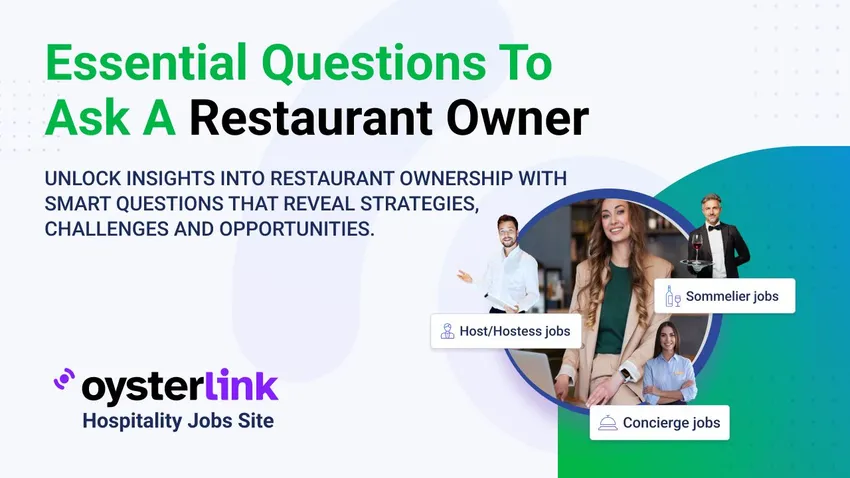50 Questions To Ask a Restaurant Owner: Key Takeaways
- Asking the right questions helps uncover how restaurant owners manage operations, staff and finances.
- Preparation and professionalism are key to making interviews valuable and respectful for both sides.
- These questions benefit both interviewers seeking insights and owners reflecting on their journey and successes.
Whether you’re a journalist, food blogger or someone looking to learn more about the industry, you’re probably here because you’re preparing questions to ask a restaurant owner during an interview (or consultation).
Below, we’ve gathered 50 questions that cover the most important aspects of successfully running a restaurant, from building the business to overcoming various challenges.
50 Interview Questions To Ask a Restaurant Owner

Read on for a peek into restaurant owners' minds and get the full picture behind their business. Each of these 50 questions also comes with example answers that restaurant owners can use if they’re going to be interviewed.
We’ve also separated the questions into 10 categories (with five questions each) to help you easily find the ones you’re looking for the most:
- The business’s beginnings
- Operations
- Financial management
- Questions specifically for Chef-owners
- Customer service
- Marketing and branding
- Hiring practices
- Staff training
- Handling of specific situations or challenges
- Personal insights and perspectives
Download our questions in PDF or Word format and take inspiration from them during your next interview with a restaurant owner.








Loading comments...